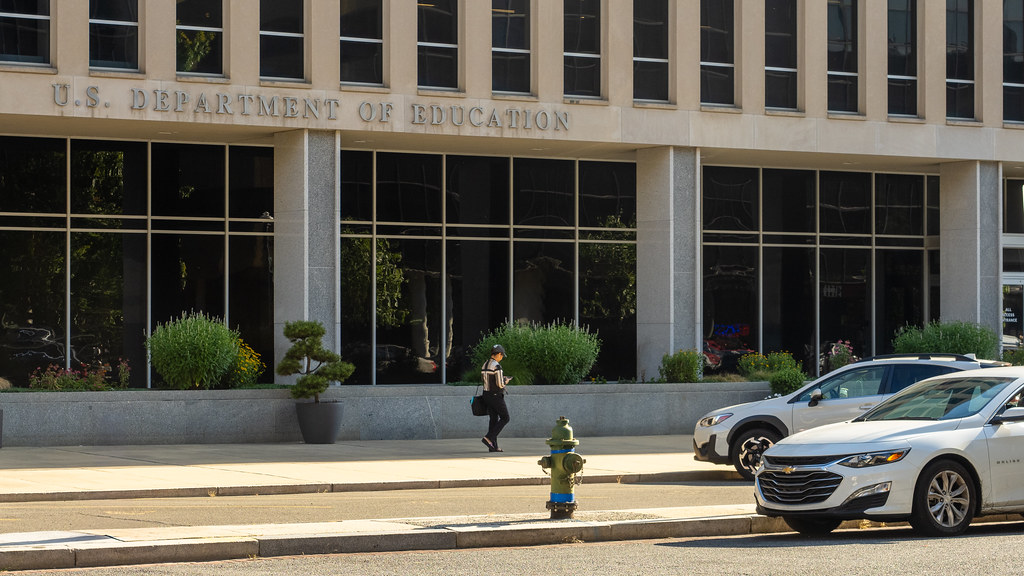
Miriam Li is a student at Harvard Law School and a member of the Labor and Employment Lab.
In today’s News and Commentary, the Second Circuit declined to revive a musician’s defamation claims against a student who wrote a #MeToo-inspired letter, the Trump administration adds new eligibility requirements for employers under the Public Service Loan Forgiveness program, and major labor unions break with the American Federation of Government Employee’s stance on the government shutdown.
In a 2–1 decision, the Second Circuit affirmed a lower court’s dismissal of a prominent jazz saxophonist’s defamation suit against his former student. The plaintiff in the suit, Steven Douglas Coleman, sued his former student for defamation after she accused him of harassment in a letter she circulated to forty friends and colleagues. Writing for the majority, Judge Sullivan held that Coleman failed to show that the defendant acted with “actual malice” and that the statements he challenged were verifiable facts rather than pure opinions. Judge Sullivan observed that the letter’s stated purpose was to tell “a more complete story” about the harassment the defendant believed she suffered, ultimately concluding that the letter’s phrasing left readers “free to determine for themselves” whether the defendant’s view was “a fair assessment.” Coleman also challenged a handful of other statements in the letter, but the majority found that they did not rise to the level of actionable defamation because they did not expose Coleman to “public hatred,” “shame,” or induce an evil opinion of [him].” Judge Menashi dissented, criticizing the majority for concluding that a “serious accusation of sexual harassment may be dismissed as mere subjective opinion.”
Meanwhile, two lawsuits—one by a coalition of state attorneys general and another by a coalition of nonprofits, city governments, and unions—challenge a new Trump administration rule restricting participation in the federal government’s Public Service Loan Forgiveness (PSLF) program. Since 2007, borrowers who pursue careers in nonprofit and government roles have been eligible for federal student loan forgiveness after making 120 qualifying payments. The new rule tightens PSLF eligibility requirements, excluding employers that “engage in unlawful activities,” which include “aiding and abetting” immigration law violations; supporting “terrorism” or “violence” in order to obstruct or influence government policy; engaging in the “chemical and surgical castration or mutilation of children” or the “trafficking of children to another State for purposes of emancipation”; and “engaging in a pattern of aiding and abetting illegal discrimination” or “violating State laws.” However, borrowers whose work qualifies under the old rules will still receive credit for work completed before July 1, 2025. Both lawsuits claim the rule violates the Administrative Procedure Act and exceeds the Department of Education’s statutory authority. One complaint also accuses the administration of “weaponiz[ing] the PSLF program” and targeting “organizations and jurisdictions” that disagree with its political positions. Under Secretary of Education Nicholas Kent accused the plaintiffs of “standing up for criminal activity,” calling the rule “a common-sense reform.”
Finally, several major unions broke with the American Federation of Government Employees’ (AFGE) stance on the government shutdown. Last week, AFGE urged Congress to pass a “clean continuing resolution” to end the shutdown—a stance that aligns with Republicans, who have refused to negotiate on healthcare or other issues until after a vote to reopen the government. On Monday, AFL-CIO President Liz Shuler struck a different tone, blaming Trump and his allies for the shutdown and criticizing Republicans for “killing jobs at home” and “pricing workers out of health care by more than doubling ACA health insurance premiums.” Likewise, Steelworkers President David McCall told ABC News he supports a solution “both prioritizing affordable health care and funding the essential services our government provides.” That said, some unions have sided with AFGE: Teamsters President Sean O’Brien urged a clean continuing resolution, calling on Democrats to “end the shutdown” during remarks made alongside Trump outside the White House.






Daily News & Commentary
Start your day with our roundup of the latest labor developments. See all
February 27
The Ninth Circuit allows Trump to dismantle certain government unions based on national security concerns; and the DOL set to focus enforcement on firms with “outsized market power.”
February 26
Workplace AI regulations proposed in Michigan; en banc D.C. Circuit hears oral argument in CFPB case; white police officers sue Philadelphia over DEI policy.
February 25
OSHA workplace inspections significantly drop in 2025; the Court denies a petition for certiorari to review a Minnesota law banning mandatory anti-union meetings at work; and the Court declines two petitions to determine whether Air Force service members should receive backpay as a result of religious challenges to the now-revoked COVID-19 vaccine mandate.
February 24
In today’s news and commentary, the NLRB uses the Obama-era Browning-Ferris standard, a fired National Park ranger sues the Department of Interior and the National Park Service, the NLRB closes out Amazon’s labor dispute on Staten Island, and OIRA signals changes to the Biden-era independent contractor rule. The NLRB ruled that Browning-Ferris Industries jointly employed […]
February 23
In today’s news and commentary, the Trump administration proposes a rule limiting employment authorization for asylum seekers and Matt Bruenig introduces a new LLM tool analyzing employer rules under Stericycle. Law360 reports that the Trump administration proposed a rule on Friday that would change the employment authorization process for asylum seekers. Under the proposed rule, […]
February 22
A petition for certiorari in Bivens v. Zep, New York nurses end their historic six-week-strike, and Professor Block argues for just cause protections in New York City.